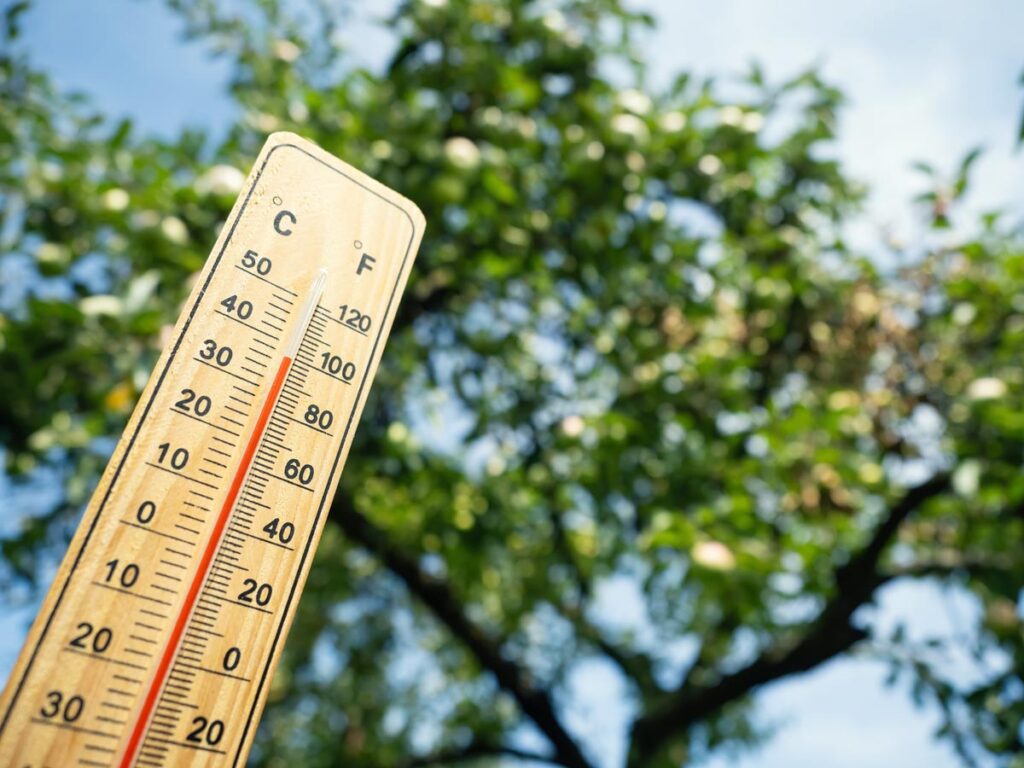
With a heatwave warning issued by the Bureau of Meteorology for much of the state this week Country to Coast Queensland is urging residents to keep their eye on the weather and ensure they are prepared to deal with extreme conditions, if they arise.
Country to Coast Queensland Chief Executive Julie Sturgess said many families were moving from holiday mode back to the normal work and school routine, but this week’s high temperatures were far from normal, with maximum temperatures set to reach the mid to high 30s increasing to the low 40s inland.
Earlier this week the Bureau of Meteorology issued a heatwave warning for the Bundaberg Region with temperatures expected to be in the mid to late 30s.
“These temperatures make for very uncomfortable conditions, particularly for those working outdoors, children returning to school, babies, those with existing medical conditions and the elderly,” Ms Sturgess said.
“Extreme heat can affect anyone, with heat-related illness varying from relatively mild heat exhaustion to the potentially life-threatening condition of heat stroke.
“The heat could hit hard this week for many school-aged children, who may already tire easily due to the back-to-school transition and particularly for our preppies who are taking their first big steps.
“It’s not just the young ones who are vulnerable – it’s Nan and Pop too. I urge everyone to check in on their older relatives and friends, and elderly neighbours, who are often living alone.”
Signs of heat-related illness include nausea, vomiting, faintness and dizziness, loss of appetite, weakness, headaches, lack of sweating and reduced urine output.
“If you or someone you know is showing severe signs of heat-related illness, seek urgent medical attention from your GP or the emergency department at the nearest hospital,” she said.
“Residents in Bundaberg or Rockhampton that need urgent medical attention due to heat-related illness can also visit recently opened Medicare Urgent Care Clinics in those cities.”
Tips to minimise the risk of heat-related illness
- Drink plenty of water and remember to carry some with you when out and about.
- Spend as much time as possible in cool or air-conditioned buildings such as shopping centres, libraries, cinemas or community centres.
- Keep yourself cool by using wet towels, putting your feet in cool water and taking cool (not cold) showers.
- Block out the sun at home during the day by closing curtains and blinds.
- Stay out of the sun during the hottest part of the day. If you must go out, wear a hat and sunscreen.
- Wear light-coloured, loose-fitting clothing made from natural fibres like cotton and linen.
- Avoid intense activity like exercise, renovating and gardening.
- Watch or listen to news reports for more information.
- Don’t forget your pets – give them a cool bath, wet towel to lie on, a place next to a fan and plenty of fresh water (even add some ice cubes).
Learn more about heatwaves at Heatwave | Get Ready Queensland
Other news: Heatwave continues for Bundaberg Region




